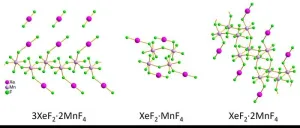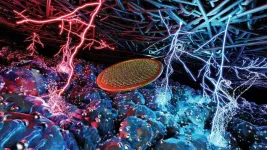(Press-News.org) August 14, 2024, TORONTO — A new round of awards from the Ontario Institute for Cancer Research (OICR) will jumpstart eight promising studies that could change how cancers are diagnosed and treated.
OICR announced the results of its Pre-Clinical Acceleration Team Awards — part of the Institute’s Clinical Translational Pathway, which helps advance new discoveries so they can benefit people affected by cancer.
The winning research teams are based across Ontario and are tackling some of the most common and hardest to treat cancers. They are developing solutions to find cancer earlier, diagnose it more accurately, and treat it more effectively with fewer side effects, with the ultimate goal of bringing these solutions to the healthcare system.
In total, OICR is providing nearly $6 million over three years to support these studies:
Dr. Madhuri Koti of Queen’s University is aiming to develop a personalized approach to treat early-stage bladder cancer, a disease which is becoming increasingly common in Canada. Koti and the team will explore ways to identify patients who will not respond to ‘BCG immunotherapy’ – the standard-of-care treatment for non-muscle invasive bladder cancer– so they can be treated with other, more effective approaches.
“With the incidence of bladder cancer continuing to rise, our biomarker-guided approach could have a major impact on improving patient quality of life.” – Dr. Madhuri Koti, Associate Professor of Biomedical and Molecular Sciences, Cancer Research Institute, Queen’s University
Dr. Neil Fleshner of the University Health Network is investigating a diabetes medication (Metformin) that has shown promise in slowing the progression of prostate cancer. Fleshner’s team will look into how the drug works at a molecular level to better understand what makes it effective, and see if it can be harnessed to treat patients with early stage prostate cancer.
“The findings from our study can be integrated into the clinic to ensure that patients with early stage prostate cancer get the right treatment at the right time.” – Dr. Neil Fleshner, Clinician Scientist, Princess Margaret Cancer Centre, University Health Network
Dr. David Uehling of the Ontario Institute for Cancer Research and Dr. Neil Vasdev of the Centre for Addiction and Mental Health (CAMH) are exploring a potential targeted therapy for a rare and deadly pediatric brain cancer called diffuse intrinsic pontine glioma (DIPG). They will use innovative ‘radiotracers’ to monitor the distribution and impact of their drug candidate in mice and determine how it can be optimized to treat patients with DIPG.
“We aim to develop a high-quality therapy that can bring hope to young people facing this terrible disease, and to their families.” – Dr. David Uehling, Scientific Lead, Therapeutic Innovation and Drug Discovery, Ontario Institute for Cancer Research.
Dr. Richard Kim of Lawson Health Research Institute (London Health Sciences Centre) is aiming to reduce the side effects of medicines called ‘kinase inhibitors’, which are effective at treating multiple types of cancers. Kim and colleagues will look for biological clues to predict which patients will benefit most from kinase inhibitors and which patients will experience severe side effects, so patients can be treated with personalized strategies.
“Our innovative approach has the potential to reduce adverse effects while ensuring that patients still get the benefits of this exciting class of cancer therapies.” – Dr. Richard Kim, Wolfe Medical Research Chair in Pharmacogenomics, Lawson Health Research Institute (London Health Sciences Centre)
Dr. Gelareh Zadeh of the University Health Network is exploring a way to diagnose what type of brain cancer a patient has without having to take a biopsy of brain tissue. Zadeh and the team are developing a test that analyzes tiny fragments of tumour DNA in a blood sample and can help determine the type of tumour, predict how it will it evolve and point to the most effective treatment.
“We hope to develop a tool that can help diagnose brain tumours and determine the best course of treatment for a patient, without the stress and risk of a brain biopsy.” – Dr. Gelareh Zadeh, Senior Scientist, University Health Network
Dr. Geoffrey Wood of the University of Guelph is looking into a radically different approach to diagnosing osteosarcoma, the most common form of bone cancer in humans that is also prevalent in dogs. Wood will lead a team exploring whether a simple blood test that can predict the spread of osteosarcoma in pet dogs can be adapted to help detect and treat bone cancer earlier in humans.
“Having an easy-to-use blood test that can predict the spread of bone cancer could help treat osteosarcoma earlier and avoid harsh treatments for those who don’t need them.” – Dr. Geoffrey Wood, Professor and Co-Director, Institute for Comparative Cancer Investigation, University of Guelph
Dr. Kun Ping Lu of Western University is exploring new ways to diagnose and treat pancreatic cancer, one of the deadliest forms of the disease. Lu and colleagues discovered an enzyme that may drive the growth of pancreatic tumours and are using it to develop a test that could inform the best ways to treat these tumours. They also believe this enzyme could be a target for new cancer drugs in the future.
“Our discovery opens up many avenues to improve how pancreatic cancer is treated and we are excited for the impact it could have for patients.” – Dr. Kun Ping Lu, Professor of Biochemistry, Schulich School of Medicine & Dentistry, Western University
Dr. Karen Mossman of McMaster University is investigating a new cancer therapy – part of a family of treatments called ‘oncolytic viruses’ – she and her colleagues developed that has shown promise in treating pancreatic, lung and colorectal cancers with minimal side effects. They will look for biological clues that indicate which patients will respond to this new therapy and try and determine the optimal dose and best way to administer it.
“We hope our work will help people live longer with better quality of life during and after cancer treatment, and help more people in Canada access the best treatment options.” – Dr. Karen Mossman, Professor of Medicine, McMaster University
OICR President and Scientific Director Dr. Laszlo Radvanyi applauded the eight research teams for their pioneering work.
“OICR is excited to be supporting some of the best and brightest researchers in the province doing truly transformative science,” says Radvanyi. “We share their commitment to harnessing new innovations to improve the lives of people affected by cancer, and we hope these awards will put them on a pathway toward making a major impact.”
“Congratulations to the research teams receiving this OICR award. The research you are doing will positively impact the lives of many Ontarians in their fight against cancer.” said Jill Dunlop, Minister of Colleges and Universities. “Ontario is proud to support research teams like these for advancing discoveries that will help improve the prevention, detection and treatment of cancer.”
OICR is funded by the Government of Ontario. As the province’s cancer research institute, we take on the biggest challenges in cancer research and deliver real-world solutions to find cancer earlier and treat it more effectively. We are committed to helping people living with cancer, as well as future generations, live longer and healthier lives. For more information visit http://www.oicr.on.ca.
The views expressed are those of OICR and do not necessarily reflect the views of the Province of Ontario.
END
Ontario Institute for Cancer Research announces awards for eight research teams developing innovative ways to diagnose and treat cancer
OICR is supporting eight studies from across Ontario through its Clinical Translation Pathway, which advances new cancer discoveries so they can benefit patients.
2024-08-14
ELSE PRESS RELEASES FROM THIS DATE:
People with COPD, asthma have higher risk of health problems from increased wildfire activity, smoke
2024-08-14
MIAMI (August 14, 2024) – Communities impacted by increased wildfire activity and smoke can use a population health-based action plan to help alleviate health risks, particularly for those with chronic obstructive pulmonary disease (COPD) and asthma, according to a new perspective article. The article is published in the July 2024 issue of Chronic Obstructive Pulmonary Diseases: Journal of the COPD Foundation, a peer-reviewed, open-access journal.
COPD is an inflammatory lung disease, comprising several conditions, ...
Early life exposure to common chemical permanently disrupts gut microbiome
2024-08-14
UNIVERSITY PARK, Pa. — Early life exposure to ‘forever chemicals’ in the environment permanently disrupts the gut microbiome in mice, contributing to the development of metabolic disease in later life, according to new research led by Penn State. The results, published today (Aug. 14) in the journal Environmental Health Perspectives, suggest that human exposure to these chemicals during early childhood may be contributing to the recent epidemic of metabolic disorders, including obesity and type 2 diabetes among adults.
The researchers focused specifically on 2,3,7,8-tetrachlorodibenzofuran ...
Rocks collected on Mars hold key to water and perhaps life on the planet. Bring them back to Earth.
2024-08-14
Over the course of nearly five months in 2022, NASA's Perseverance rover collected rock samples from Mars that could rewrite the history of water on the Red Planet and even contain evidence for past life on Mars.
But the information they contain can't be extracted without more detailed analysis on Earth, which requires a new mission to the planet to retrieve the samples and bring them back. Scientists hope to have the samples on Earth by 2033, though NASA's sample return mission may be delayed.
"These samples are the reason why our mission was flown," said paper ...
Nighttime light data shows inequities in restoring power after Hurricane Michael
2024-08-14
Among the many devasting impacts in the aftermath of a hurricane are power outages, which can take days or even weeks to restore. Communities grappling with the loss of electricity may encounter obstacles in accessing vital services, including food, fuel and health care.
In 2018, Hurricane Michael, a Category 5 storm, wreaked havoc in Florida as it made landfall in the United States. It was strongest recorded to hit the Florida Panhandle with winds of nearly 161 miles per hour and storm surge reaching heights ...
Rising mercury pollution in soil could be related to climate change, study says
2024-08-14
In 2017, the Minamata Convention on Mercury went into effect, designed to help curb mercury emissions and limit exposure across the globe. However, a new study of mercury levels in soil suggests that the treaty’s provisions might not be enough. The study published in ACS’ Environmental Science & Technology estimates that soil stores substantially more mercury than previously thought, and it predicts that increases in plant growth due to climate change may add even more.
Mercury is a persistent environmental pollutant, moving through air, water and soil, and accumulating within plants ...
Exploring the structures of xenon-containing crystallites
2024-08-14
Noble gases have a reputation for being unreactive, inert elements, but more than 60 years ago Neil Bartlett demonstrated the first way to bond xenon. He created XePtF6, an orange-yellow solid. Because it’s difficult to grow sufficiently large crystals that contain noble gases, some of their structures — and therefore functions — remain elusive. Now, researchers have successfully examined tiny crystallites of noble gas compounds. They report structures of multiple xenon compounds in ACS Central ...
Oral cancer screening: Insights into epidemiology, risk factors, and screening programs for improved early detection
2024-08-14
Cancer is a complex disease characterized by uncontrolled cell growth, significantly impacting global health. Head and neck cancers rank as the sixth most prevalent cancers worldwide, with a higher incidence in South-central Asia. Oral squamous cell carcinoma (OSCC) is the predominant malignancy in this category, posing a significant health concern due to its high mortality and often late-stage diagnosis. The significance of early detection and appropriate screening measures cannot be overstated, as they play a pivotal role in improving survival rates and reducing the disease burden.
Overview ...
AAAS and Chen Institute inaugurate new prize recognizing innovative applications of AI techniques
2024-08-14
In collaboration with the Tianqiao and Chrissy Chen Institute, the American Association for the Advancement of Science (AAAS) is announcing the establishment of the Chen Institute and Science Prize for Al Accelerated Research. Submissions are now open for the first year of the prize, which will be awarded in 2025.
The prize will recognize young researchers who apply techniques in artificial intelligence (AI) – such as machine learning, natural language processing, or computer vision – to help the life sciences research community solve important problems and accelerate their work. Successful applicants will have made a fundamental advance that would not have been ...
A method that paves the way for improved fuel cell vehicles
2024-08-14
More efficient and longer-lasting fuel cells are essential for fuel cell-powered heavy-duty hydrogen vehicles to be an alternative to combustion fuelled counterparts. Researchers at Chalmers University of Technology, Sweden, have developed an innovative method to study and understand how parts of fuel cells degrade over time. This is an important step towards the improved performance of fuel cells and them becoming commercially successful.
Hydrogen is a fuel alternative that is becoming increasingly interesting for heavy-duty vehicles. Hydrogen-powered vehicles only emit water vapour as exhaust, and if the hydrogen is produced using renewable energy, it is completely free ...
How air-powered computers can prevent blood clots
2024-08-14
A new, air-powered computer sets off alarms when certain medical devices fail. The invention is a more reliable and lower-cost way to help prevent blood clots and strokes — all without electronic sensors.
Described in a paper in the journal Device, the computer not only runs on air, but also uses air to issue warnings. It immediately blows a whistle when it detects a problem with the lifesaving compression machine it is designed to monitor.
Intermittent pneumatic compression or IPC devices are leg sleeves that fill with air periodically and ...
LAST 30 PRESS RELEASES:
Alkali cation effects in electrochemical carbon dioxide reduction
Test platforms for charging wireless cars now fit on a bench
$3 million NIH grant funds national study of Medicare Advantage’s benefit expansion into social supports
Amplified Sciences achieves CAP accreditation for cutting-edge diagnostic lab
Fred Hutch announces 12 recipients of the annual Harold M. Weintraub Graduate Student Award
Native forest litter helps rebuild soil life in post-mining landscapes
Mountain soils in arid regions may emit more greenhouse gas as climate shifts, new study finds
Pairing biochar with other soil amendments could unlock stronger gains in soil health
Why do we get a skip in our step when we’re happy? Thank dopamine
UC Irvine scientists uncover cellular mechanism behind muscle repair
Platform to map living brain noninvasively takes next big step
Stress-testing the Cascadia Subduction Zone reveals variability that could impact how earthquakes spread
We may be underestimating the true carbon cost of northern wildfires
Blood test predicts which bladder cancer patients may safely skip surgery
Kennesaw State's Vijay Anand honored as National Academy of Inventors Senior Member
Recovery from whaling reveals the role of age in Humpback reproduction
Can the canny tick help prevent disease like MS and cancer?
Newcomer children show lower rates of emergency department use for non‑urgent conditions, study finds
Cognitive and neuropsychiatric function in former American football players
From trash to climate tech: rubber gloves find new life as carbon capturers materials
A step towards needed treatments for hantaviruses in new molecular map
Boys are more motivated, while girls are more compassionate?
Study identifies opposing roles for IL6 and IL6R in long-term mortality
AI accurately spots medical disorder from privacy-conscious hand images
Transient Pauli blocking for broadband ultrafast optical switching
Political polarization can spur CO2 emissions, stymie climate action
Researchers develop new strategy for improving inverted perovskite solar cells
Yes! The role of YAP and CTGF as potential therapeutic targets for preventing severe liver disease
Pancreatic cancer may begin hiding from the immune system earlier than we thought
Robotic wing inspired by nature delivers leap in underwater stability
[Press-News.org] Ontario Institute for Cancer Research announces awards for eight research teams developing innovative ways to diagnose and treat cancerOICR is supporting eight studies from across Ontario through its Clinical Translation Pathway, which advances new cancer discoveries so they can benefit patients.




